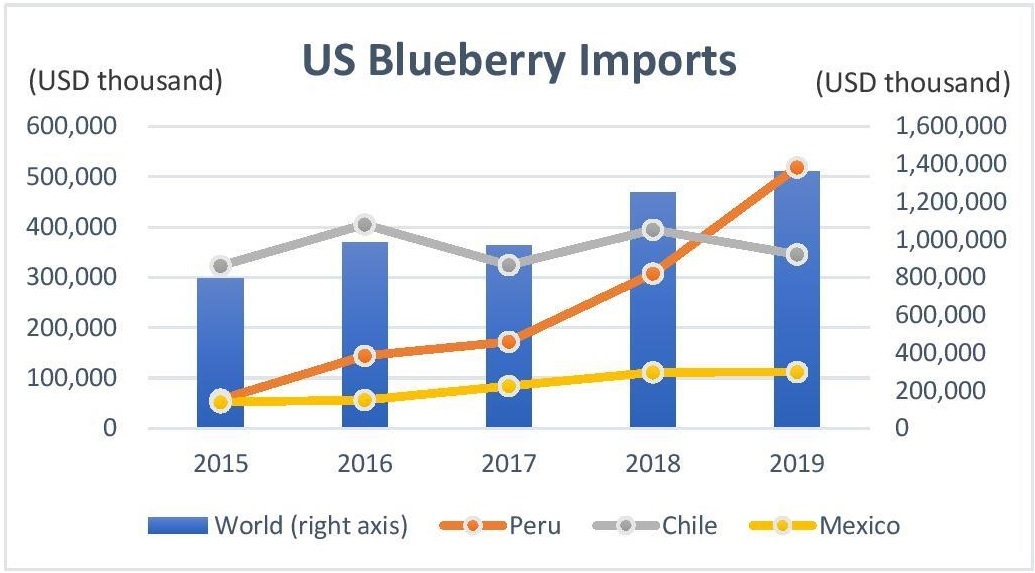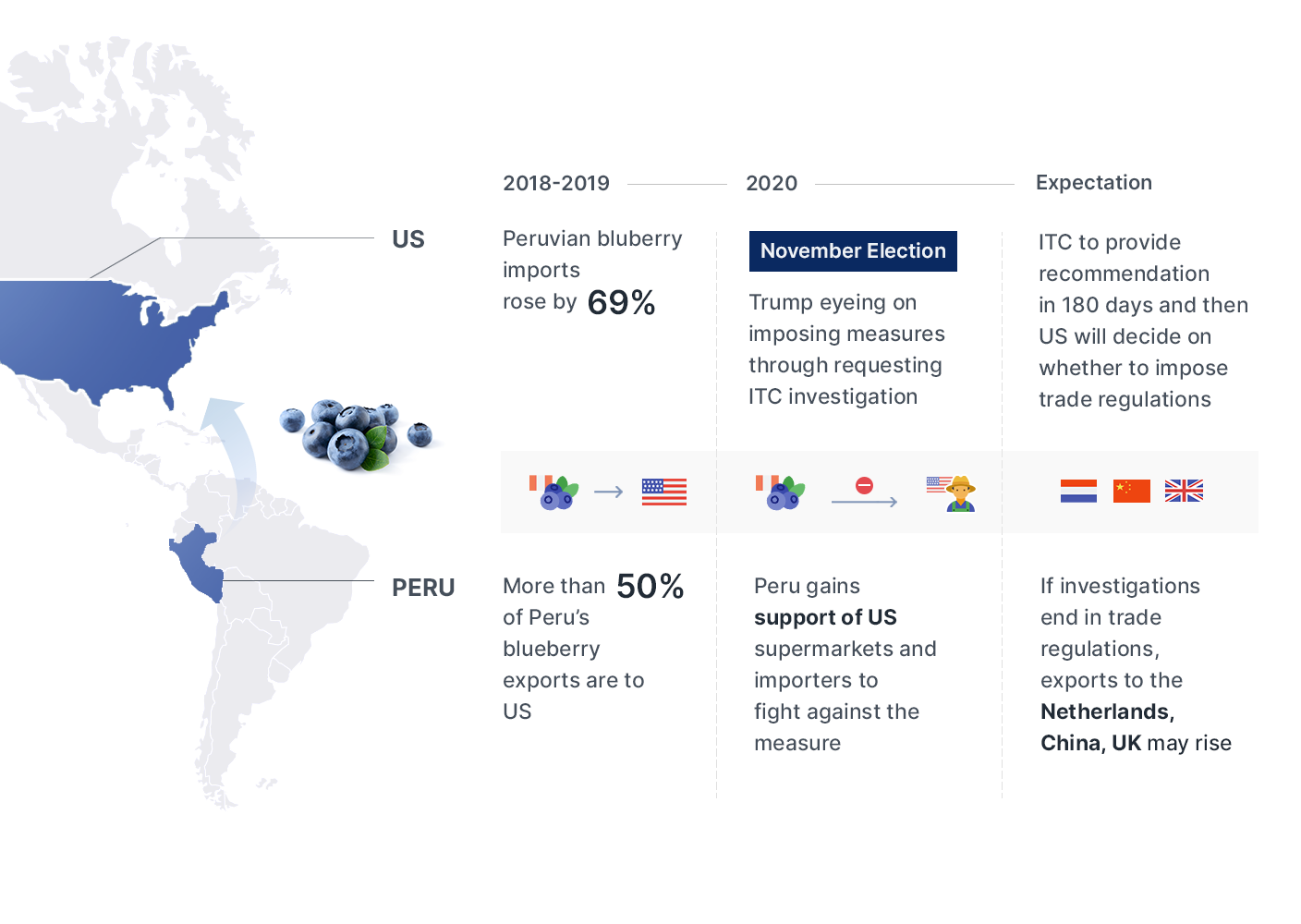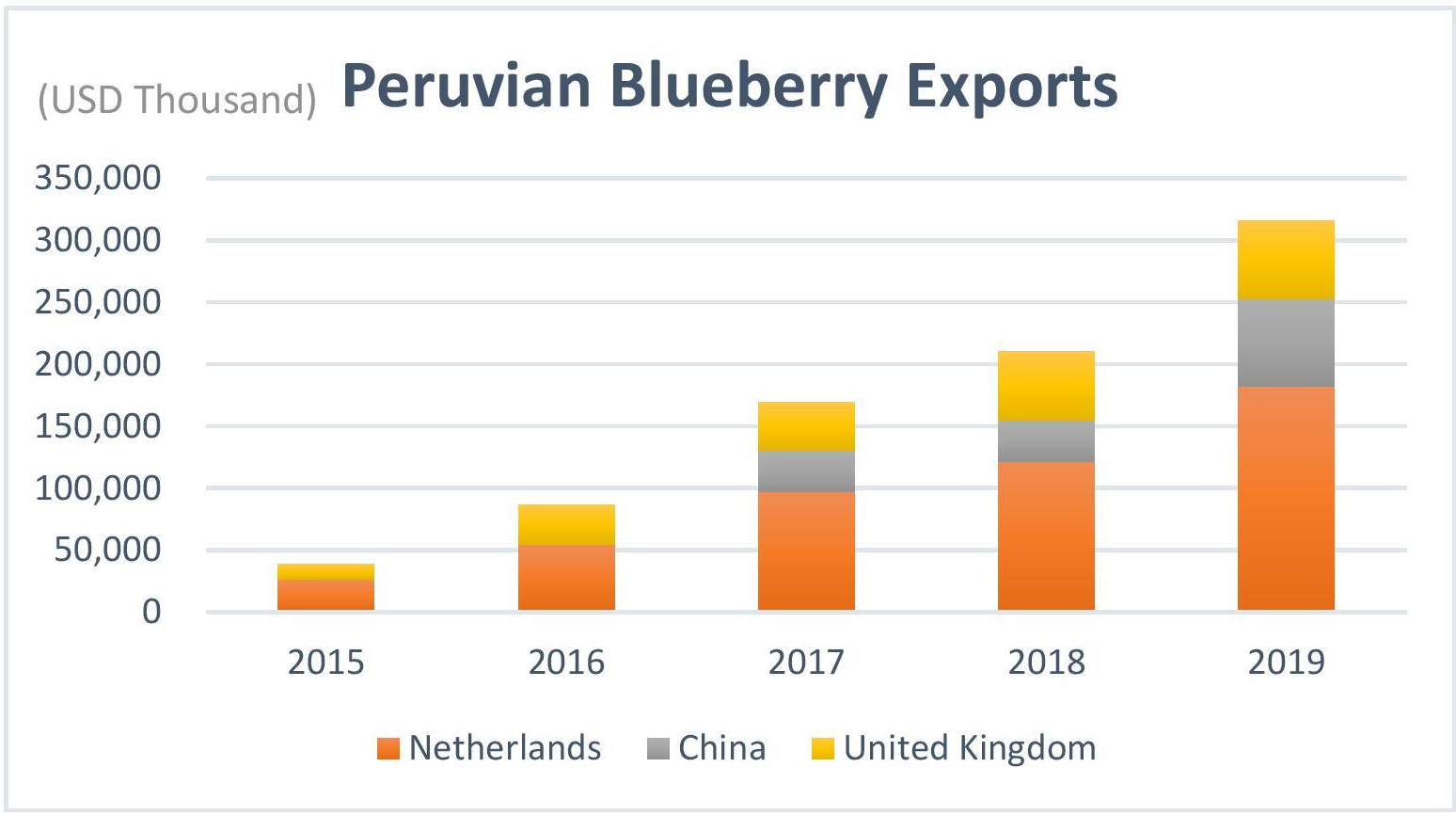The U.S. Eyeing on Imposing Safeguard Measures Against Peruvian Blueberries
Protectionist measures ahead of the US presidential election
The US Trade Representative has asked the International Trade Commission(ITC) to start a Section 201 "global safeguard investigation" on how blueberry imports have adversely affected US growers- a movement in line with the Trump administration's campaign that has prioritized and focused on aid for farmers ahead of the November election as rural areas hold most of his supporters. The Trump administration plans to take steps to protect US growers of seasonal produce against what it calls threats of increased imports, from initiating an ITC investigation to form an inter-agency group for possible investigations and trade actions.
Peruvian Blueberries posing threats to US growers
Peruvian blueberries have been set as a target as it accounts for most of the dramatic increase in US' blueberry imports in recent years. The South American country posted a CAGR of 174% in exports to the US during 2015-2019 and posted 69% YoY growth in 2019, causing a threat to the US' domestic producers. The Section 201 investigation will give the US growers an opportunity to "pause" Peruvian imports, and, depending on the outcome, reasonably limit the number of blueberries that come into the US for some time. Throughout this investigation, which will last a maximum of 180 days, the governments and producers involved will have the right to a hearing and may present evidence to support their positions.

Source: Tridge
The South American country to actively defend against the ITC investigation
As the US accounts for more than 50% of the Peruvian blueberry exports, the South American country is slated to actively demonstrate that its exporters do not engage in practices anti-competitive to the detriment of US producers, in response to these measures. As part of this strategy, they obtained US supermarkets and importers' support in general, who would suffer from such protectionist measures. Another point to support the argument is that Peruvian blueberry exports are mostly concentrated between the months of October and March, frame time in which the production of blueberries in the United States does not fully supply their demand. Peruvian exports complement its national production.

Netherlands, China, and the UK may benefit from the outcome
It remains to be seen whether the investigation will be concluded to trade restrictions such as quotas, tariffs, or some other types. If so, Peru will likely export the amount lost due to the measures to other countries with discounts given the excess supplies. Some likely candidates that may see their imports from Peru rising are the Netherlands, China, and the UK, as they follow the US in Peruvian blueberry import values in order and have been seeing rising demands for the fruit in domestic markets.

Source: Tridge
Sources
The Packer, Blueberry growers looking for relief from imports
The Packer, US considers steps to protect against seasonal imports
The Hill, Trump announces another $13B in aid to farmers affected by COVID-19





